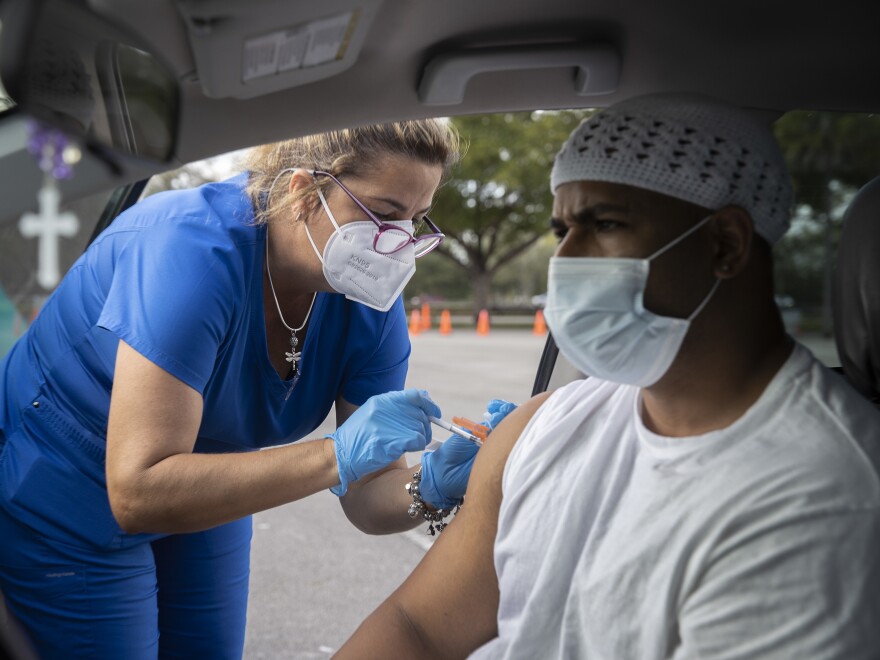People who test positive for COVID-19 only need to isolate themselves for 5 days if they don't show symptoms, the Centers for Disease Control and Prevention said Monday. This cuts in half the earlier recommendation of 10 days of isolation.
Data shows that the majority of COVID-19 transmission "occurs early in the course of the illness," the CDC explained — generally in the one or two days before symptoms begin, and two or three days after.
"Therefore, people who test positive should isolate for 5 days and, if asymptomatic at that time, they may leave isolation if they can continue to mask for 5 days to minimize the risk of infecting others," the CDC said.
The CDC has also updated its recommended quarantine period for people exposed to the virus. It says the unvaccinated should quarantine for 5 days, followed by 5 days of "strict mask use." Exposed people who have are more than 6 months past their second dose of Pfizer or Moderna, or 2 months out from a Johnson & Johnson vaccine, should also quarantine for 5 days.

People who have gotten their booster shot don't need to quarantine after exposure, but should wear a mask for the next 10 days.
"The Omicron variant is spreading quickly and has the potential to impact all facets of our society," said CDC Director Dr. Rochelle Walensky. "CDC's updated recommendations for isolation and quarantine balance what we know about the spread of the virus and the protection provided by vaccination and booster doses. These updates ensure people can safely continue their daily lives."
Copyright 2021 NPR. To see more, visit https://www.npr.org. 9(MDAyNDY5MjM1MDEyODE2MzMyMTZmZDQwMg001))








